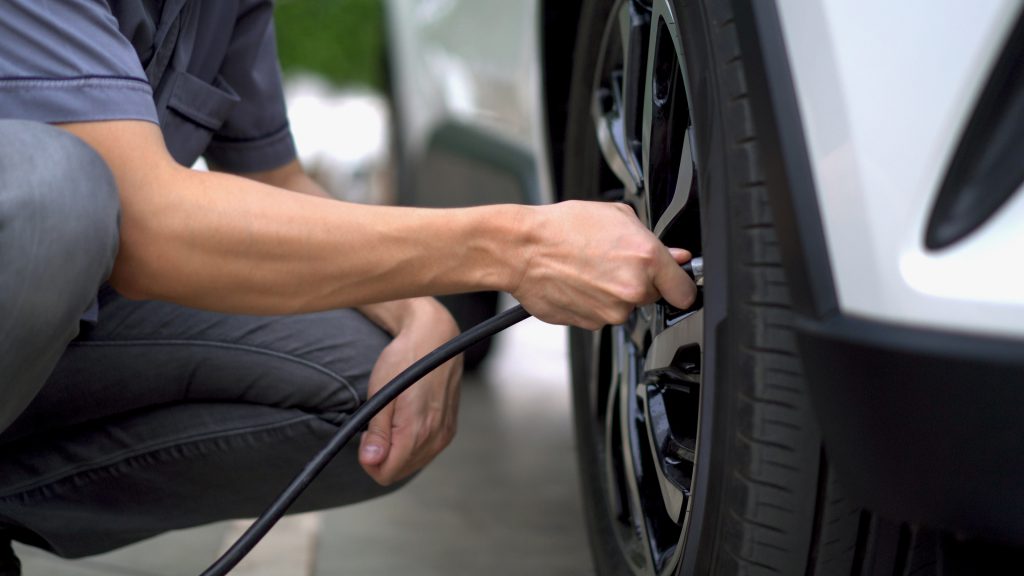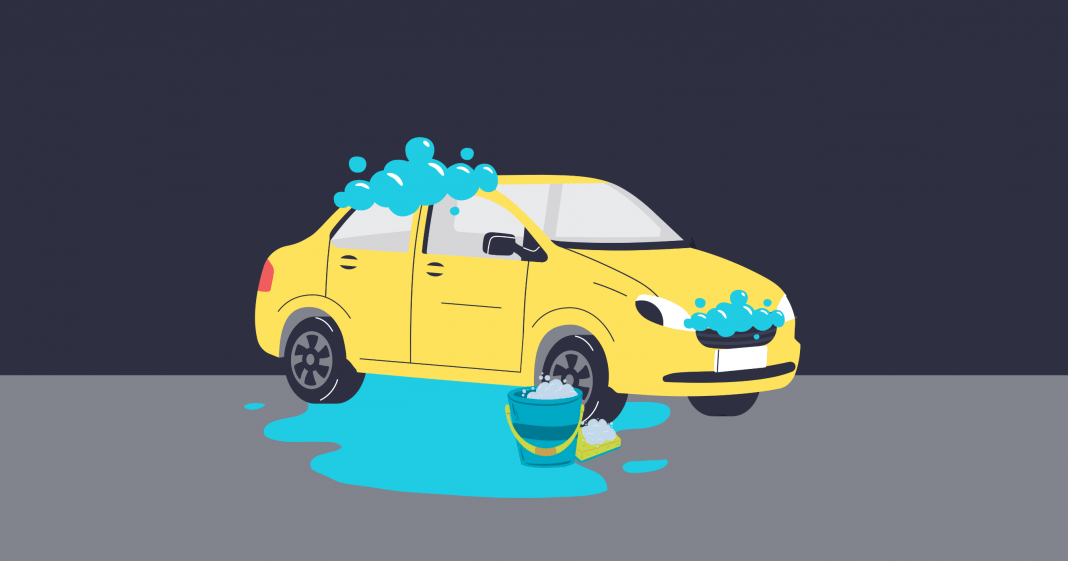Last Updated on October 2, 2024
So, you’ve just got your new car! It can feel like opening a door to a whole new world of freedom. But with this newfound freedom comes great responsibility – and it’s one that goes beyond just keeping your hands at 10 and 2 on the steering wheel! We’re talking about the crucial, yet often overlooked, world of vehicle maintenance.
Starting your journey as a driver is an exciting milestone, filled with the promise of independence and new experiences. However, as a learner driver, it’s essential to recognise that owning and operating a vehicle involves more than just knowing how to navigate the roads. Proper vehicle maintenance is a fundamental aspect of car ownership that ensures your safety, the longevity of your vehicle, and the overall driving experience. When you take the time to learn and perform basic car maintenance tasks, you equip yourself with the knowledge and skills necessary to keep your vehicle in top condition. This not only helps in preventing unexpected breakdowns but also enhances your confidence as a driver. Regular maintenance checks can seem daunting at first, but they become second nature with a bit of practice and understanding.
Your car is a complex machine with numerous components working together to provide you with a smooth and safe ride. Neglecting its maintenance can lead to other issues, potentially turning a minor fixable problem into a significant repair job. Understanding the importance of vehicle maintenance from the outset can save you time, money, and stress in the long run. In this blog, we will delve into why vehicle maintenance is crucial, the potential consequences of neglecting it, and some practical tips to help you stay on top of your car’s upkeep. By the end, you’ll have a comprehensive understanding of how regular maintenance can enhance your driving experience and ensure your vehicle remains reliable and safe.
Key Aspects of Vehicle Maintenance Every Learner Driver Should Know
Before we explore the specific reasons why vehicle maintenance is important, it’s helpful to understand the various aspects involved in maintaining a car. Here are some key areas you should familiarise yourself with:
- Oil Level and Quality: The engine oil lubricates moving parts, reduces friction, and prevents overheating. Regularly checking and changing your oil is essential for engine health.
- Tyre Maintenance: Properly inflated and well-maintained tyres are crucial for safe handling, fuel efficiency, and overall driving safety. This includes checking tyre pressure and tread depth regularly.
- Brake System: Ensuring your brakes are in good condition is vital for your safety. This includes regular checks of brake pads, discs, and fluid levels.
- Lights and Indicators: Functioning headlights, brake lights, and indicators are essential for visibility and communication with other drivers.
- Windscreen and Wipers: Clear visibility is a must for safe driving. Regularly check your windscreen for chips and cracks and ensure your wiper blades are effective.
- Battery Health: A reliable battery ensures your car starts every time. Regularly check the battery terminals for corrosion and test the battery’s charge.
Understanding these key areas and incorporating them into your regular car care routine will help keep your vehicle in excellent condition and reduce the risk of unexpected problems.
Why is Vehicle Maintenance Important?
Vehicle maintenance is essential for every driver, but it holds particular importance for learner drivers who are just starting their journey on the roads. Regular car maintenance is key to ensuring that your vehicle is safe to drive, reliable, and runs efficiently. A well-maintained vehicle not only helps you avoid unexpected breakdowns but also improves fuel efficiency, extends the life of your car, and reduces the overall cost of ownership by preventing major repairs. Moreover, a properly maintained vehicle is more environmentally friendly, emitting fewer pollutants and contributing to a healthier planet.
What Can Happen if a Vehicle is Not Properly Maintained?
Neglecting vehicle maintenance can lead to a host of problems that can compromise your safety and the performance of your car. Poorly maintained vehicles are prone to breakdowns, which can leave you stranded at inconvenient times and locations. Ignoring routine checks can lead to issues like low oil levels, under-inflated tyres, or worn-out brake pads, which can significantly impair your vehicle’s handling and braking capabilities. Over time, these minor issues can escalate into major mechanical failures that require costly repairs. In the worst-case scenario, neglecting essential maintenance can potentially lead to accidents, putting your safety and the safety of others on the road at risk.
Vehicle Maintenance – The Basics
First and foremost, your vehicle manual is going to become your best friend in your quest to keep your car in top shape. The manual, while not the most thrilling read, outlines everything from required oil type, correct tyre pressures and even the schedule for routine services. By understanding your vehicle manual, you are laying a solid foundation to your vehicles well-being.
Taking care of your car doesn’t need to be complicated, there are a few small tasks you can complete that will have a big impact, including:
– Oil Level – Keeping the lifeblood of your engine at the right level is crucial to ensure it runs smoothly. A quick oil check once a month or before any long trips could save you a lot of headaches.
– Tire Pressure – Properly inflated tires are an essential part of safe handling and fuel efficiency. Check your tire pressure regularly as correctly inflated tires wear more evenly, extending their life and saving you money in the long run.

– Lights – Regularly check headlights, brake lights and indicators to ensure they are working. Not only are your lights crucial for safety, but they can also be a legal requirement. Ask a friend to help you check brake and reverse lights, or park near a reflective surface to see them yourself.
Whilst these checks seem basic, they can be your first line of defence against unforeseen breakdowns and problems.
Servicing Your Car
Regular basic checks can be undertaken by almost anyone, however, scheduled services* tend to require a professional mechanic. Services are designed to thoroughly inspect and maintain your vehicle, ensuring everything from the engine to the exhaust is in top condition.
Services can include an oil change, filter replacement, brake inspection and more. Adhering to the recommended service schedule in your vehicle handbook can help prevent major issues down the road and ensure your car is reliable for years to come.
It may well be tempting to skip a vehicle service to save money in the short-term. However, regular services can save significant amounts in the long run by catching potential issues before they become expensive repairs.
*This is an affiliate link where Collingwood may receive payment if a service is booked.
Keeping a Clear View: Windows and Windscreen Maintenance
When it comes to vehicle maintenance, it’s not just what is under the bonnet that matters. The clarity of windows, condition of the windscreen, effectiveness of wiper blades and even the cleanliness of your car play a role in your driving experience.
Clear visibility is key to safe driving, and that starts with keeping your windows and windscreen clear. Performing regular cleans of the inside and outside of your windows can help improve visibility, especially under the glare of sunlight or oncoming headlights. When cleaning, try using a good quality glass cleaner and microfiber cloth to avoid streaks that might impair your vision.
Regularly check your windscreen for any chips or cracks. Small chips can quickly turn into large cracks if they’re not addressed promptly, potentially leading to costly replacements.
Wiper Blades: Your Bad Weather Besties
Wiper blades can be an overlooked element of car maintenance, until you’re caught in a downpour. Check your wiper blades every few months and look for signs of wear and damage. Tell-tale signs often include streaking, skipping or squeaking noises. Replacing wiper blades is both simple and cost-effective. This simple to use tool from Halfords can help you select the right size wiper blades and will allow you to book a fitting.
A Clean Car is a Happy Car: The Importance of Washing
Washing your car is not purely for aesthetics, it is also an important maintenance task. Dirt, road salt or grit and bird droppings can all damage vehicle paint, and lead to rust if left uncleaned. Regularly washing your car can help to preserve the appearance and in turn, the resale value. Pay special attention to the undercarriage of your car during winter months, especially if you live by the coast as salt build up can lead to rust and corrosion.

If you are washing your car by hand, use products specifically designed for vehicle paint. Some household detergents can strip away waxes and damage the finish.
Top tip: Try applying a coat of wax after washing to protect the paint and keep that new car look!
Conclusion
By adopting a proactive approach to vehicle maintenance, you’re ensuring safer travels, preserving the vehicle’s aesthetic appeal, and maintaining its resale value. Regular maintenance tasks, although seemingly trivial, can have profound effects on the performance and longevity of your car. Whether it’s checking the oil level, ensuring the tyres are properly inflated, or scheduling regular services, these small steps can save you from significant expenses and hazards down the road. Additionally, keeping your car in good condition contributes to a smoother, more enjoyable driving experience and can even improve fuel efficiency, saving you money at the pump. Remember, when in doubt, seek professional advice. A mechanic can provide peace of mind, ensuring your vehicle is in optimal condition for every journey. Investing a little time and effort into vehicle maintenance today can lead to safer, more reliable driving tomorrow.
FAQs
- How often should I check my car’s oil level? It’s recommended to check your car’s oil level at least once a month and before any long trips. Regular checks help ensure your engine runs smoothly and can prevent potential damage.
- What is the ideal tyre pressure for my car? The ideal tyre pressure varies depending on your vehicle. You can find the recommended pressure in your vehicle’s manual or on a sticker inside the driver’s door. Regularly checking tyre pressure can improve safety and fuel efficiency.
- When should I replace my wiper blades? Wiper blades should generally be replaced every 6-12 months or when you notice signs of wear such as streaking, skipping, or squeaking. Effective wiper blades are crucial for clear visibility during adverse weather conditions.
- How often should my car be serviced? Your car should be serviced according to the schedule outlined in your vehicle’s manual. This usually means a service every 12 months or 12,000 miles, whichever comes first. Regular servicing ensures your car remains in good condition and helps catch potential issues early.
- What are the signs that my brakes need to be checked? Common signs that your brakes need attention include squeaking or grinding noises, a spongy brake pedal, the car pulling to one side when braking, or longer stopping distances. If you notice any of these signs, have your brakes inspected by a professional as soon as possible.









